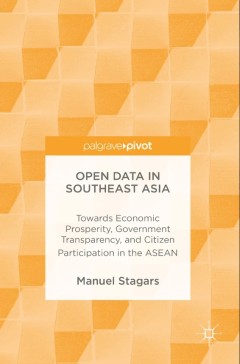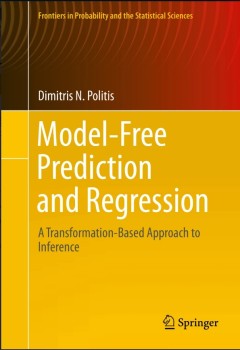Filter by

Open Data in Southeast Asia
This book explores the power of greater openness, accountability, and transparency in digital information and government data for the nations of Southeast Asia. The author demonstrates that, although the term “open data” seems to be self-explanatory, it involves an evolving ecosystem of complex domains. Through empirical case studies, this book explains how governments in the ASEAN may harv…
- Edition
- 1
- ISBN/ISSN
- 978-3-319-32169-1
- Collation
- XXV, 192
- Series Title
- -
- Call Number
- -

Financial Econometrics and Empirical Market Microstructure
In the era of Big Data our society is given the unique opportunity to understand the inner dynamics and behavior of complex socio-economic systems. Advances in the availability of very large databases, in capabilities for massive data mining, as well as progress in complex systems theory, multi-agent simulation and computational social science open the possibility of modeling phenomena never be…
- Edition
- -
- ISBN/ISSN
- 978-3-319-09946-0
- Collation
- VIII, 284
- Series Title
- -
- Call Number
- -

Lévy Matters IV: Estimation for Discretely Observed Lévy Processes
The aim of this volume is to provide an extensive account of the most recent advances in statistics for discretely observed Lévy processes. These days, statistics for stochastic processes is a lively topic, driven by the needs of various fields of application, such as finance, the biosciences, and telecommunication. The three chapters of this volume are completely dedicated to the estimatio…
- Edition
- -
- ISBN/ISSN
- 978-3-319-12373-8
- Collation
- -
- Series Title
- -
- Call Number
- -

Introduction to Insurance Mathematics: Technical and Financial Features of Ri…
This second edition expands the first chapters, which focus on the approach to risk management issues discussed in the first edition, to offer readers a better understanding of the risk management process and the relevant quantitative phases. In the following chapters the book examines life insurance, non-life insurance and pension plans, presenting the technical and financial aspects of risk t…
- Edition
- -
- ISBN/ISSN
- 978-3-319-21377-4
- Collation
- -
- Series Title
- -
- Call Number
- -

Model-Free Prediction and Regression
The Model-Free Prediction Principle expounded upon in this monograph is based on the simple notion of transforming a complex dataset to one that is easier to work with, e.g., i.i.d. or Gaussian. As such, it restores the emphasis on observable quantities, i.e., current and future data, as opposed to unobservable model parameters and estimates thereof, and yields optimal predictors in diverse set…
- Edition
- 1
- ISBN/ISSN
- 978-3-319-21346-0
- Collation
- XVII, 246
- Series Title
- Frontiers in Probability and the Statistical Sciences
- Call Number
- -
 Computer Science, Information & General Works
Computer Science, Information & General Works  Philosophy & Psychology
Philosophy & Psychology  Religion
Religion  Social Sciences
Social Sciences  Language
Language  Pure Science
Pure Science  Applied Sciences
Applied Sciences  Art & Recreation
Art & Recreation  Literature
Literature  History & Geography
History & Geography